Resources
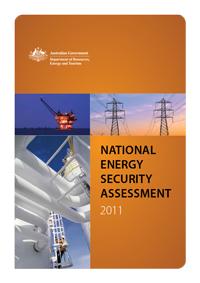 ,
, 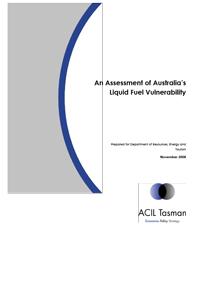
Date
Description
The NESA identifies the current strategic energy security issues in the liquid fuels, natural gas and electricity sectors, and those posing a potential risk in short term, medium term and longer term. The Government has indicated that the NESA will provide a key input into the development of future…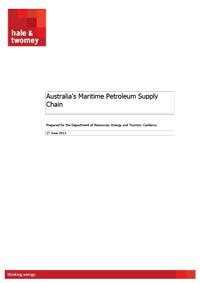
Date
Description
In 2013, Hale and Twomey was engaged by the Federal Department of Resources, Energy and Tourism (DRET) to examine and report on the maritime supply chain and the key role it plays in Australia's petroleum supply chain. The report considers how the maritime supply chain operates for Australia and…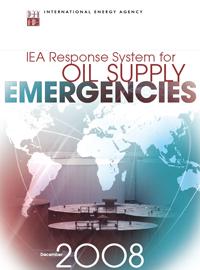
Date
Description
The International Energy Agency (IEA) is the energy forum for 28 industrialised countries, founded in 1974 (see www.aip.com.au/pricing/iea.htm). IEA member country governments are committed to taking joint measures to meet oil supply emergencies. They also have agreed to share energy information,…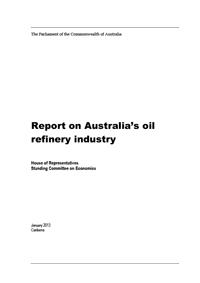
Date
Description
On 5 February 2013 the House of Representatives Standing Committee on Economics tabled its Report on 'Australia's Oil Refinery Industry', following the Committee's inquiry in 2012. The Inquiry was conducted in relation to claims and concerns being raised about the viability of Australia's oil…Date
Description
An AIP publication which provides a factual overview of the liquid fuels market and supply chain in Australia. It also details the key factors influencing the secure and reliable supply of liquid fuels to industry, business and consumers and explains why Australia is in a strong position to…Date
Description
Transport fuel imports do not increase risk for supply reliability and security A diversity of global supply sources and local import facilities provide a range of options for Australia. Australia is already dependent on imports to meet the growth in demand for transport fuels (eg. demand…Date
Description
The Federal Government has introduced regulation of the quality of petrol and diesel fuel in Australia. The principal drivers of the fuel quality regulation are environmental. The adoption of emerging vehicle engine and emission control technologies is a key strategy in the management of ambient…Date
Description
The ACCC releases its Formal Monitoring Reports each year ('Monitoring of the Australian petroleum industry-report of the ACCC into the prices, costs and profits of unleaded petrol in Australia').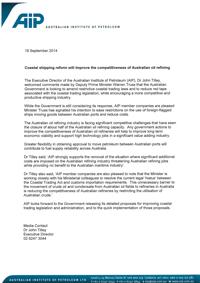
Date
Description
The Executive Director of the Australian Institute of Petroleum (AlP), Dr John Tilley, welcomed comments made by Deputy Prime Minister Warren Truss that the Australian Government is looking to amend restrictive coastal trading laws and to reduce red tape associated with the coastal trading…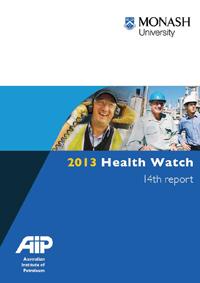
Date
Description
AIP and its member companies welcome the very encouraging results of the industry's 14th Health Watch Report released today by Monash University. Overall, the Study clearly shows that petroleum industry employees have better health than the general Australian community and are less…